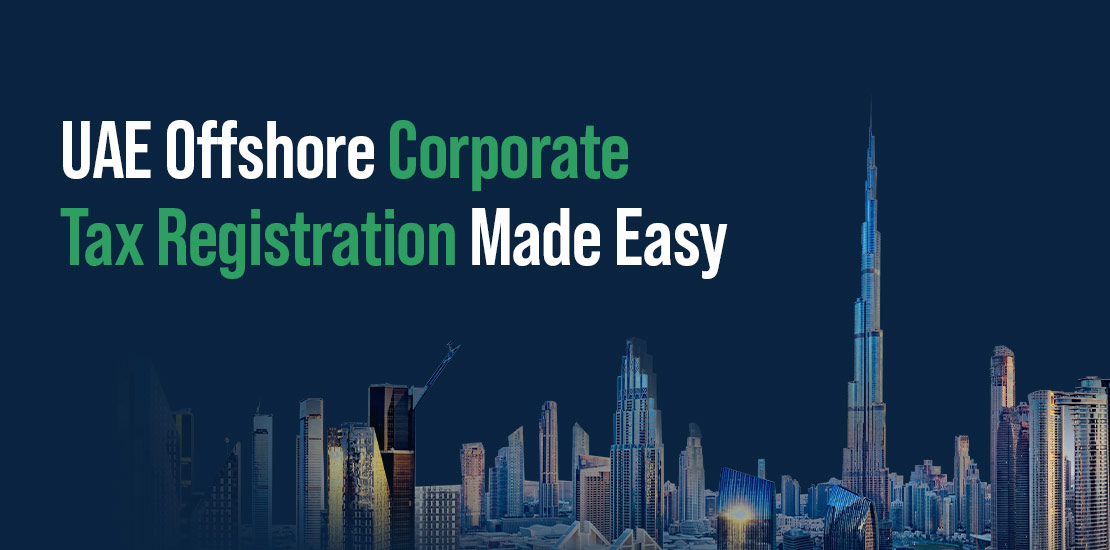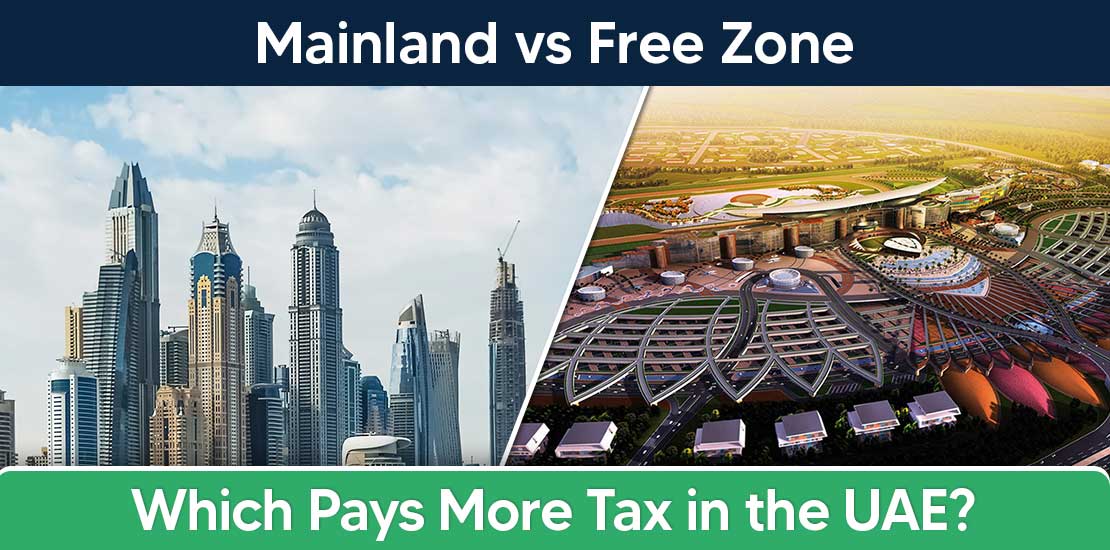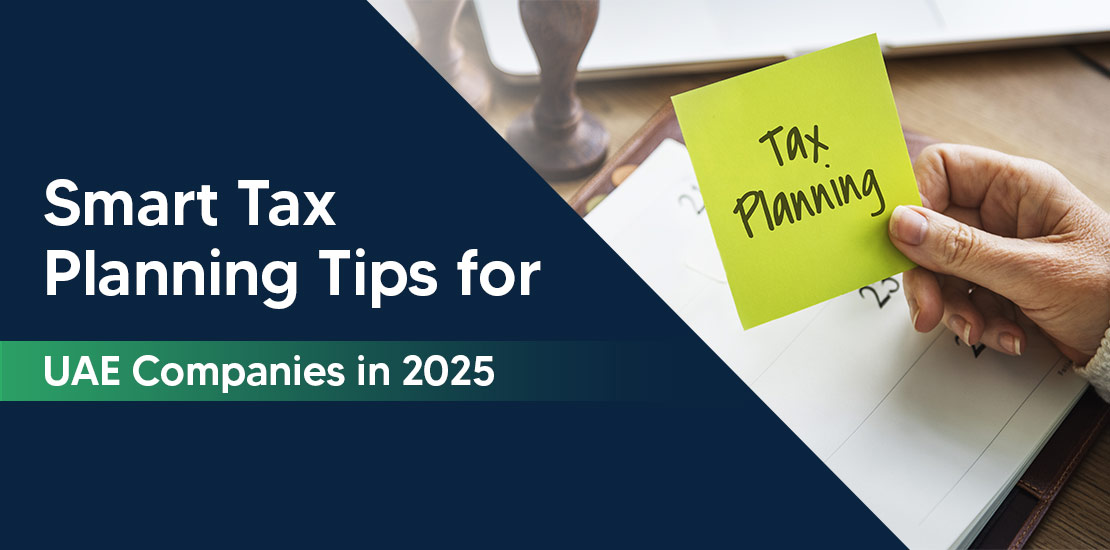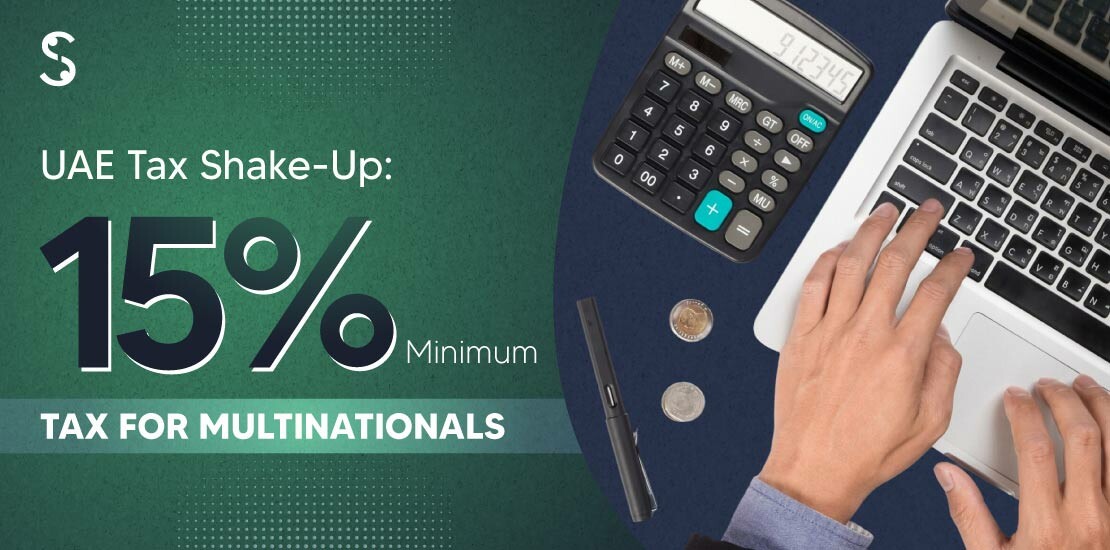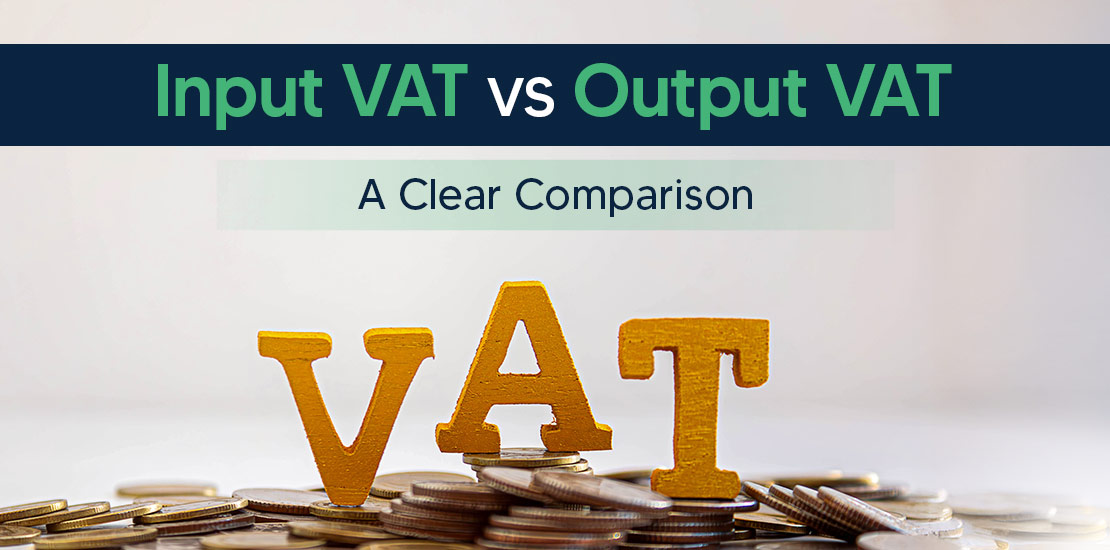The UAE is known around the world as one of the most tax-friendly countries. One of the biggest attractions for expats, investors, and entrepreneurs is that there’s no personal income tax or capital gains tax here. In fact, Dubai and Abu Dhabi have even been ranked among the most tax-friendly cities globally, which makes the UAE a hotspot for people who want to live, work, and grow their businesses in a low-tax environment.
That being said, the UAE isn’t completely tax-free. Over the past few years, the government has introduced several types of taxes to support economic growth and reduce reliance on oil revenues. These include the 5% Value Added Tax (VAT) introduced in 2018, the 9% Corporate Tax that started in 2023, as well as Excise Tax on certain goods, Customs Duties on imports, and municipality and tourism-related fees.
So, let us break down the main types of taxes in the UAE in simple terms, so that both residents and businesses can better understand how the system works and what it means for them.
Does Dubai Have Taxes?
Dubai is often seen as a tax-free city, but the reality is a bit more nuanced. While there is no personal income tax, no capital gains tax, and no inheritance tax, Dubai does have certain other taxes and fees that residents, businesses, and visitors should know about.
Some of the key taxes include:
- Value Added Tax (VAT)
- Corporate Tax
- Excise Tax
- Customs Duties
- Municipal and Tourism Taxes
So, while Dubai doesn’t tax personal income, it does have a structured system of indirect and business-related taxes.
Types of Taxes in the UAE
Here are the different types of taxes in Dubai and other Emirates for businesses and individuals:
1. Value Added Tax (VAT)
Value Added Tax (VAT) is a consumption tax that is levied on the supply of most goods and services at each stage of the supply chain. While businesses collect and account for the tax on behalf of the government, the tax is ultimately borne by the end consumer.
Current VAT Rate:
The standard VAT rate in the UAE is 5%, which applies to most goods and services. This is actually quite low compared to many other countries around the world.
Types of VAT in the UAE:
The UAE has three main VAT categories:
- Standard Rate (5%): This applies to most things you buy – groceries, clothes, electronics, restaurant meals, hotel stays, and most services.
- Zero Rate (0%): Exports outside the GCC, international flights, some education services (schools, universities), healthcare services (approved treatments, medicines), and investment-grade precious metals. Businesses still need to report these in VAT returns but at 0%.
- Exempt: Some goods and services are completely exempt from VAT, meaning no tax is charged and businesses can’t claim input tax credits on these items.
Who needs to register for VAT in UAE?
Businesses must register for VAT if their annual turnover exceeds AED 375,000. There’s also a voluntary registration option for businesses with turnover between AED 187,500 and AED 375,000. If you’re a non-resident business making supplies in the UAE where VAT should be charged, you need to register regardless of your turnover amount.
VAT Refunds for Tourists:
Visitors can claim a VAT refund on purchases over AED 250 (including VAT) when shopping at participating stores, similar to tax-free shopping in other countries.
How VAT works (example):
If a restaurant sells a meal for AED 100, it must add 5% VAT (AED 5). The customer pays AED 105, and the restaurant passes AED 5 to the Federal Tax Authority (FTA). The restaurant can also claim back VAT it paid on supplies (like ingredients).
2. Corporate Tax (CT)
Corporate Tax (CT) is a direct tax levied on the net profit or taxable income of corporations and other businesses from their activities. It is a significant shift in the UAE’s long-standing, low-tax environment.
Current Corporate Tax Rates:
The UAE has a three-tier corporate tax system:
- 0% on profits up to AED 375,000.
- 9% on profits above AED 375,000 (one of the lowest corporate tax rates globally).
- 15% on certain large multinational companies with global revenues over EUR 750 million, following OECD’s global minimum tax rules.
Who pays Corporate Tax in the UAE?
- All mainland companies.
- Free Zone companies are also within scope, but qualifying free zone income (such as trade with outside UAE or other free zones) can still enjoy 0% tax, provided they meet the UAE’s substance rules.
- Foreign companies with a permanent establishment in the UAE.
Exemptions:
- Government entities and government-controlled companies.
- Extractive industries (like oil & gas) are taxed separately by the emirates.
- Certain non-profits, charities, and public benefit organisations (if approved by the Cabinet).
What Counts as Taxable Income?
Corporate tax is calculated on net taxable profits, which means:
- Your total business income
- Minus allowable business expenses
- Minus any applicable deductions or exemptions
Deductions & Reliefs:
- Businesses can deduct expenses like salaries, rent, utility bills, and R&D costs before calculating taxable income.
- Losses can be carried forward and offset against future taxable profits.
- Small Business Relief: Companies with revenues below AED 3 million (until 2026) can elect for relief and be treated as if they made no taxable income.
3. Excise Tax
Excise tax is an indirect tax levied on specific goods that are deemed to be harmful to human health or the environment. It is a form of “sin tax” and was introduced to discourage the consumption of these products and to generate additional revenue for the government. Unlike VAT, which is applied at each stage of the supply chain, excise tax is a one-time tax collected at the point of import or production.
Products & Rates:
- 100% on tobacco and tobacco products.
- 100% on energy drinks.
- 50% on carbonated drinks (except plain sparkling water).
- 50% on sweetened drinks (introduced in December 2019).
- 100% on electronic smoking devices and related liquids.
Who pays the Excise Tax in the UAE?
Excise tax is paid by importers, producers, and stockpilers of excisable goods. Ultimately, the cost is passed on to the consumer through higher retail prices.
4. Custom Duties
Customs duties are taxes levied on goods imported into the UAE. They are collected by UAE Customs at the border and then distributed among the emirates or GCC states (since the UAE is part of the GCC Customs Union).
Standard Rate:
Generally, 5% of the cost, insurance, and freight (CIF) value of most goods.
Exceptions & Special Rates:
- 50% duty on alcohol.
- 100% duty on tobacco products.
- Some goods may be subject to higher/lower rates depending on trade agreements.
Free Zones Advantage:
Goods imported into the UAE Free Zones are exempt from customs duties as long as they stay within the zone. If they are later imported into the mainland, then customs duty applies.
Exemptions:
- Goods imported within the GCC states (if meeting the rules of origin).
- Diplomatic and military imports.
- Personal belongings and household items of UAE nationals returning to the country.
- Imports for charities and certain public organisations.
While the overall customs policy is governed by federal law, customs administration and collection are managed by the individual Emirate’s customs departments, such as Dubai Customs, Abu Dhabi Customs, etc., under the general oversight of the Federal Authority for Identity, Citizenship, Customs, and Ports Security (ICP).
5. Municipal Taxes
Municipal taxes are local-level taxes imposed by emirates on residents, property users, and hospitality services. These are not federal taxes but are collected by municipal authorities in each emirate.
1. Dubai:
Housing Fees: A municipal tax levied on residential tenants. It is calculated as 5% of the annual rental value, as specified in the tenancy contract. The fee is typically paid monthly and is included as a separate line item on the tenant’s Dubai Electricity and Water Authority (DEWA) bill.
Market Fees: A similar tax, also at a rate of 5%, that applies to commercial properties.
2. Abu Dhabi:
Rental Fees: A fee of 5% of the annual rental value is levied on tenancy contracts. This fee is added to the monthly Abu Dhabi Distribution Company (ADDC) utility bill. It’s crucial to note that these fees apply to expatriate residents, while UAE citizens are typically exempt from this charge on residential contracts.
6. Personal Income Tax
Income tax is a tax on salaries, wages, and personal earnings. In most countries, individuals pay income tax directly from their monthly salary or annual income.
However, the UAE is famous for having no personal income tax. Residents and expatriates do not pay tax on salaries, wages, or investment income (like dividends, rental income, or capital gains). There is also no inheritance tax or wealth tax in the UAE.
7. Other Fees & Indirect Taxes
In addition to VAT, Corporate Tax, Excise, and Customs Duties, the UAE also has smaller but important indirect taxes and fees that residents, visitors, and businesses should know about:
Road Tolls:
- Dubai (Salik): Introduced in 2007, each time a car passes through a Salik gate, AED 4 is deducted automatically via a prepaid Salik tag. There’s no daily maximum cap.
- Abu Dhabi (Darb): Introduced in 2021, AED 4 per crossing during peak hours at selected toll gates. Maximum daily cap is around AED 16 per vehicle.
Stamp Duties and Administrative Fees:
- These are one-time fees paid to government departments for specific transactions, particularly in the real estate sector.
- Property Transfer Fees: When a property is bought or sold, a mandatory fee is paid to the relevant Land Department. In Dubai, this fee is 4% of the property’s sale price or market value, typically split between the buyer and the seller. In Abu Dhabi, the fee is 2% of the property’s value. Other emirates have similar charges.
- Mortgage Registration Fees: In Dubai, a fee of 0.25% of the loan amount is charged for registering a mortgage.
Note: Keep in mind, tax rates are subject to change. Contact experts at Shuraa Tax for up-to-date information.
Stay Compliant, Stay Stress-Free with Shuraa Tax
The UAE continues to stand out as one of the world’s most tax-friendly countries. With no personal income tax and low rates on business profits, it’s a great place to live, work, and build a business. But at the same time, there are now a few taxes like VAT, Corporate Tax, Excise Tax, and municipal fees that both individuals and companies need to understand.
For business owners, keeping up with tax rules and filing everything correctly can feel tricky. That’s where Shuraa Tax can help. From corporate tax and VAT registration to excise tax, accounting & bookkeeping, payroll, and tax residency certificates, our experts handle it all so you can focus on running your business with peace of mind.
If you want expert help and a smooth, hassle-free way to handle your taxes in the UAE, just reach out to Shuraa Tax today.
📞 Call: +(971) 44081900
💬 WhatsApp: +(971) 508912062
📧 Email: info@shuraatax.com




